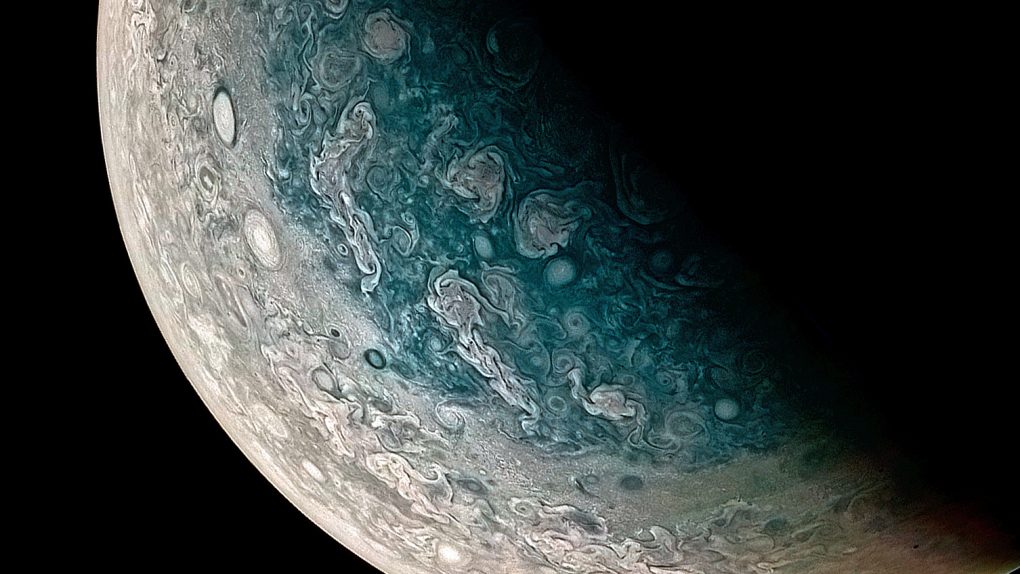For scientists studying Jupiter, there’s plenty to see. The gas giant has a wealth of personality, and its swirling storms and colorful streams of gas provide researchers with a lot to observe. One aspect of the massive planet that isn’t often talked about is its amount of water, but new data from NASA’s Juno orbiter is helping to shed some light on that.
As NASA’s Jet Propulsion Laboratory explains in a new blog post, a new study published in Nature Astronomy using data from Juno suggests that Jupiter’s atmosphere includes around 0.25% water, at least near the planet’s equator.
As JPL notes, this finding is a big deal for scientists hoping to better understand Jupiter and its formation:
An accurate estimate of the total amount of water in Jupiter’s atmosphere has been on the wish lists of planetary scientists for decades: The figure in the gas giant represents a critical missing piece to the puzzle of our solar system’s formation. Jupiter was likely the first planet to form, and it contains most of the gas and dust that wasn’t incorporated into the Sun.
The last time scientists had any data on Jupiter’s water it came from the Galileo probe. That mission, which wrapped up in late 1995, returned results that suggested that Jupiter was extremely dry, lacking much water in its atmosphere. These new measurements would appear to indicate that Galileo sampled an unusually dry area and that Jupiter has a bit more water than we assumed.
“Just when we think we have things figured out, Jupiter reminds us how much we still have to learn,” Scott Bolton, Juno principal investigator, said in a statement. “Juno’s surprise discovery that the atmosphere was not well mixed even well below the cloud tops is a puzzle that we are still trying to figure out. No one would have guessed that water might be so variable across the planet.”








